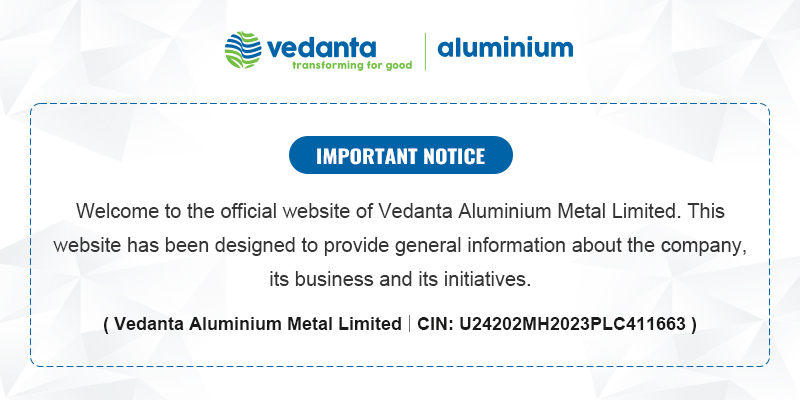Aluminium: The Driving Force behind EVs (Electric Vehicles)
29 Apr 2024
Sustainability has moved from being a mere buzzword to one that has tangible implications for a business. Yet its true worth continues to remain largely unexplored. This is often due to the upfront costs often involved in moving to more sustainable processes, which overshadows the prospect of future gains. Despite an increased awareness of the need for sustainability and the ubiquitous status it has acquired over the years, a sustainability-first approach is often left wanting of the support it truly deserves. However, at Vedanta Aluminium, our commitment to sustainability is woven into our organizational DNA, right from the mantra of ‘Transforming for Good’ to ensuring responsible business practices in aluminium manufacturing.
In an era where sustainability is increasingly paramount, aluminium shines as a beacon of ensuring environmental stewardship. Monikers such as ‘the green metal’ and ‘the metal of the future’ underscore the central role played by the metal in ensuring a greener planet. With its light weight, durability, corrosion-resistance, infinite recyclability, aluminium has become indispensable for the future and is extensively utilized across several industries. Today, a staggering 75% of all aluminium ever produced remains in use, a testament to its enduring value. It has also emerged as a highly versatile metal, with applications extending to innumerable sectors ranging from construction, packaging, electrical systems, and many more.
For example, aluminium is the ‘MVP’ (Most Valuable Player) of the transportation sector, leveraging its lightweight nature to enhance fuel efficiency and reduce CO2 emissions. The transition from gas engines to the quiet efficiency of EVs (electric vehicles) is reshaping our roads, driven by diverse factors like policy support, consumer preferences, and climate concerns. Nearly one in five cars sold in 2023 was an EV, as per the IEA Global EV Outlook 2024. EVs come with zero tailpipe emissions, which appeal to eco-conscious individuals amidst the growing consequences of climate change.
Advancements in battery technology, tax incentives and subsidies, in addition to the prospect of long-term savings, make EVs an appealing option, potentially revolutionizing transport and mobility. Aluminium is extensively used in EVs for battery pack enclosures, body construction and charging infrastructure, contributing significantly to sustainability and energy efficiency. From optimising thermal efficiency to minimising charging time and enhancing durability, aluminium is pivotal in the smooth functioning of EVs. Aluminium’s excellent heat conductivity efficiently dissipates heat from components like battery and power electronics optimising performance and lifespan. This not only enhances energy efficiency but also significantly contributes to reduced charging times. The lightweight metal reduces the weight thereby improving vehicular control and responsiveness increasing the safety quotient of the vehicle. A study by the Aluminium Association reports that a 10% reduction in weight through increased usage of aluminium can boost EVs performance by 6%.
Vedanta is committed to ensuring sustainability throughout the aluminium value chain from mining to recycling, thereby promoting a circular economy. Nevertheless, there are challenges to overcome to harness aluminium’s full potential, which includes a consistent and reliable supply for downstream industries. Vedanta ensures a steady supply of high-quality raw materials, efficient processing and distribution networks while minimising the environmental impact of extraction and production and simultaneously evaluating human rights protection. As the wheels of progress turn towards a greener future, we at Vedanta Aluminium are revving-up to accelerate the future of mobility – one that is sustainable and safe.














